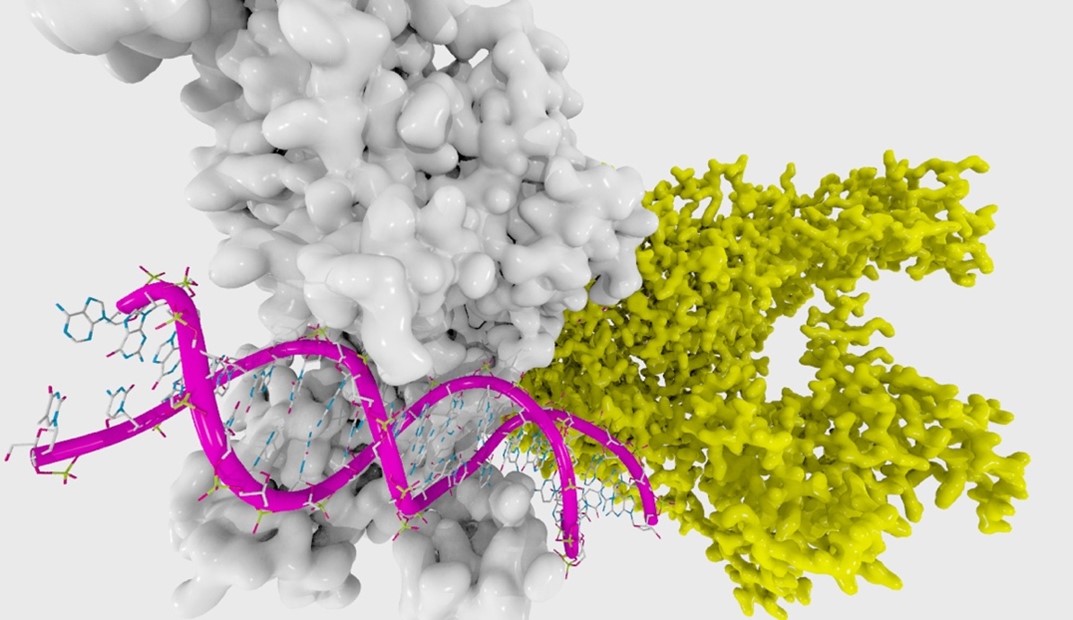Estimating gastric cancer risk using DNA methylation and lifestyle data
Published: 27 Oct 2023

DNA methylation data can help predict gastric cancer risk (Credit: Enzymlogic from Flickr)
Gastric cancer is the fourth leading cause of cancer-related mortalities worldwide. Various environmental and lifestyle-related factors, like tobacco and alcohol consumption, are known to contribute to the risk of gastric cancer. Further, infection by Helicobacter pylori–a bacterium found in the stomach–is another leading risk factor for the onset of the disease. H. pylori infection can cause inflammation and exacerbated aberrant DNA methylation in the stomach mucosa. Aberrant DNA methylation due to H. pylori infection can accumulate in the gastric mucosa years before the onset of gastric cancer. DNA methylation in the promoter region of tumour-suppressing genes is known to cause silencing of these genes and eventual carcinogenesis in the tissue. However, it remains to be confirmed whether DNA methylation caused by H. pylori infection can be used as a marker for future gastric cancer. Further, there are no reports on how the interaction between DNA methylation and lifestyle factors influences the development of gastric cancer.
An international team of researchers, led by Prof. Atsushi Kaneda from Chiba University, Japan, with Prof. Patrick Tan, Senior Vice-Dean for Research & Professor, Cancer & Stem Cell Biology Signature Research Programme, Duke-NUS Medical School and Prof. Yeoh Khay Guan, Kishore Mahbubani Professor in Medicine and Health Policy from the Department of Medicine at the Yong Loo Lin School of Medicine, National University of Singapore, has recently demonstrated how DNA methylation and lifestyle factors interact and influence the risk of gastric tumour development, also known as gastric neoplasia (GN). The study also involved Dr. Genki Usui and other researchers from the following institutions in Japan and Singapore: Chiba University, The University of Tokyo, NTT Medical Center Tokyo, Tokyo University of Science (all in Japan); and Duke-NUS Medical School, NUS Medicine, National University Hospital, Tan Tock Seng Hospital, Singapore General Hospital, and Changi General Hospital (all in Singapore). They collaborated on co-authoring the manuscript published in eBioMedicine on October 26, 2023. Discussing his motivation to pursue the research, Dr. Kaneda, who was formerly a gastrointestinal surgeon, said, “It is, of course, very important to cure patients who have already developed cancer, but I believe it would be more helpful if we can manage cancer risk before cancer development.”
The team studied the association between clinical factors and GN development. They examined gastric mucosal biopsy samples collected from asymptomatic subjects who developed GN later or didn’t develop GN during a health check-up. Methylation analyses were performed on DNA extracted from these biopsy samples and also from GN tissue, and the mucosae in its vicinity taken from patients who developed GN later. The data revealed that DNA methylation that highly accumulated in the gastric mucosa many years prior to GN formation was associated with higher GN risk and a shorter period for the onset of disease. Interestingly, the data also showed that methylation levels in the patients’ DNAs were linked to H. pylori infection and a lifestyle that involved tobacco and alcohol consumption.
While DNA methylation was determined to be an independent GN risk factor, drinking and smoking were found to amplify the pro-carcinogenic DNA methylation alterations caused by H. pylori. “The combination of unfavorable lifestyle factors and DNA methylation resulted in a much higher risk of GN development,” said Prof Tan. “Most importantly, when integrated into our analyses, this information accurately reflected the risk of GN and offers the possibility of tailoring management according to the risk of the patient,” added Prof Yeoh.
Read more in the press release here.

